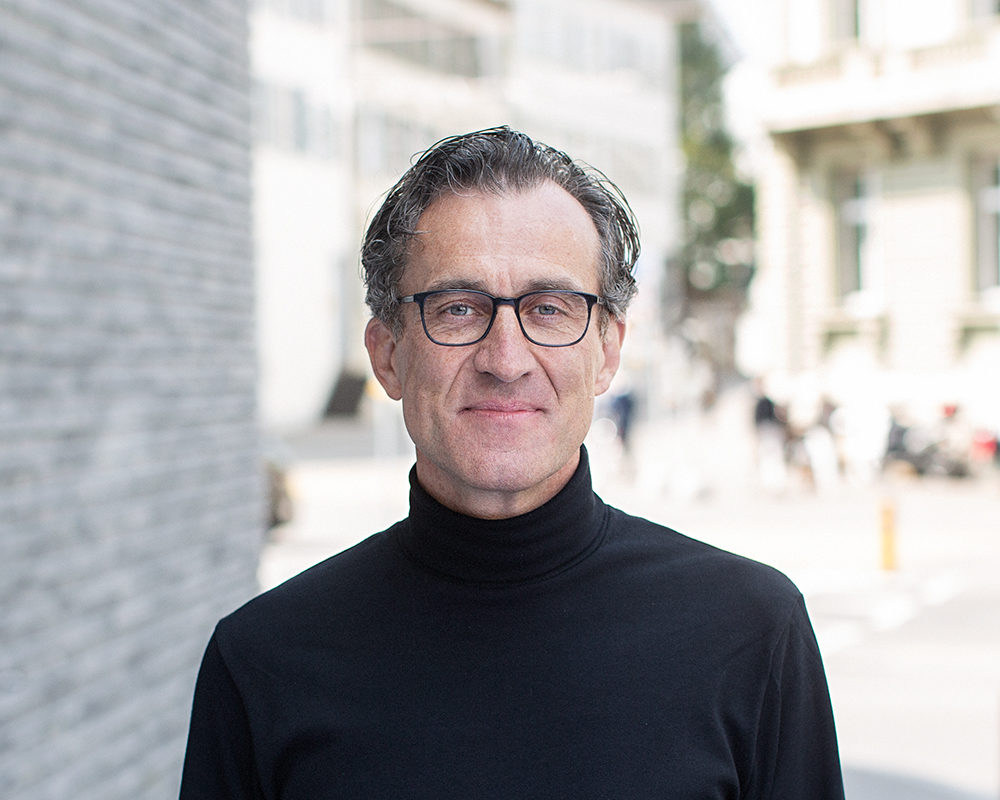The future of collaboration is digital
Since becoming the first CEO of Fondation Botnar in 2017, Stefan Germann has led us through a period of rapid growth and change. Here he reflects on how challenges in 2020 further shaped our work and our organisation.
“At Fondation Botnar, strategy is a fluid, iterative process of adaptation and discovery.”
Q1
-
How has Fondation Botnar responded to COVID-19?
The pandemic has only sharpened the urgency of nurturing young people’s wellbeing and potential using digital tools and platforms.
In response, we committed CHF 20 million to support international research to understand better and respond faster to COVID-19. Three-quarters of that sum went to the Botnar Research Centre for Child Health’s 11 research consortia in the areas of diagnostics, immunology and interventions. The rest will fund the development of new privacy-preserving technologies for disease prevention and control, with a focus on implementation in low-resource settings, at the Swiss Federal Institute of Technology in Lausanne.
We also gave our partners flexibility to adapt their activities and timelines to unexpected new realities and extended the submission deadline for our flagship Fit for the Future grant program.
Q2
-
What would you like people to know about the recent development of your funding strategy?
You won’t hear us talking about three-year strategies or five-year plans at Fondation Botnar. We see strategy as a fluid, iterative process of adaptation anddiscovery.
With strong engagement from social scientists, we went through a strategic re-evaluation in 2020 that has moved us toward a more relational definition of wellbeing. Now more than ever, we aim to understand how young people see the world in terms as close to their own as possible.
Both in our refined strategy and in our program design and delivery, we’re focussing on young people’s relationships with other people, their natural environment and the wider culture, politics and economy. Practically, this means finding more ways for them to give us their vital input throughout the cycle of projects we fund and to grow their own capacities.
Q3
-
How has Fondation Botnar evolved as an organisation in 2020?
Just as we see our strategy as continuously unfold- ing, we see Fondation Botnar as an organism that’s always changing. Our team motto could be “Let go, let be and let in”. We accept that things won’t go perfectly, we welcome critical feedback and we’re flexible in how we think and work.
In 2020 we made progress toward a goal that’s been at the heart of my vision for our organisation since I took the role of CEO: becoming a more agile andefficient and less centralised team. In addition to digitalising our operations, we now structure our work around “Teal” organisational principles such as self-management and empowerment. These principles are aligned with a clear sense of our purpose, not with any hierarchy.
Always looking for innovative new ways to fulfil our mission, we’ve teamed up with cinfo to establish a Young Professionals Program that brings young people on our staff for two-year stints. The benefits go both ways: while they gain experience as up-and-coming change makers, we’re enriched by their perspectives, ideas and expertise.
Q4
-
What would you personally mention as a key takeaway of 2020?
Young people are not only resilient but innovative and creative. Their first-hand experiences and input are more than a crucial source of intelligence for any effort to create a healthy future where they can thrive. They are a wellspring of ideas and action that we are just beginning to tap. To spur exploration of new ways of coping with challenges presented by COVID-19, which in Africa has hit people under 35 particularly hard, the African Youth Digital Innovation Platform’s skill-building marketplace YOMA invited young people to submit ideas for protecting themselves and their communities from the virus. More than 80 000 contenders aged 14 to 35 took part in this COVID-19 Design Innovation Challenge, submitting around 8 000 prototypes of solutions, the best of which are now being incubated.
Q5
-
And a key takeaway for Fondation Botnar as an organisation?
Our partners are determined, resourceful and simply remarkable. Their initial shock at COVID-19 quickly gave way to agile action. One of the 20 grants we awarded to cover COVID “contingencies” went toward our partner D-tree’s initiative to support Zanzibar’s national response to the virus. Together with the Conrad N. Hilton Foundation, we are supporting a strong community-based COVID-19 response in Zanzibar by integrating response activities into the country’s established, digitally-enabled community health program, swiftly reacting to the critical need for rapid data transmission and remote health worker training and communication.
Q6
-
Coming full circle, has COVID-19 changed the way Fondation Botnar works?
The future of collaboration is digital – for us and for our partners. If 2020 taught us anything, it is that digital technologies will be increasingly central to learning and collaboration in the 21st century. COVID-19-related restrictions on travel and face-to- face contact accelerated our integration of digital tools and platforms into the way we work with one another and with our partners.
Our partners have found ingenious ways to adapt their programs for young people as well as their own operations to a suddenly more virtual world. The pandemic has also got us thinking about building relationships with local consultancies who could be our eyes and ears on the ground and carry our activities forward when we cannot do so ourselves. In this sense, the COVID-19 crisis has helped us all become more resilient, even as it has reminded us how important face-to-face interaction is to our relationships and activities.
